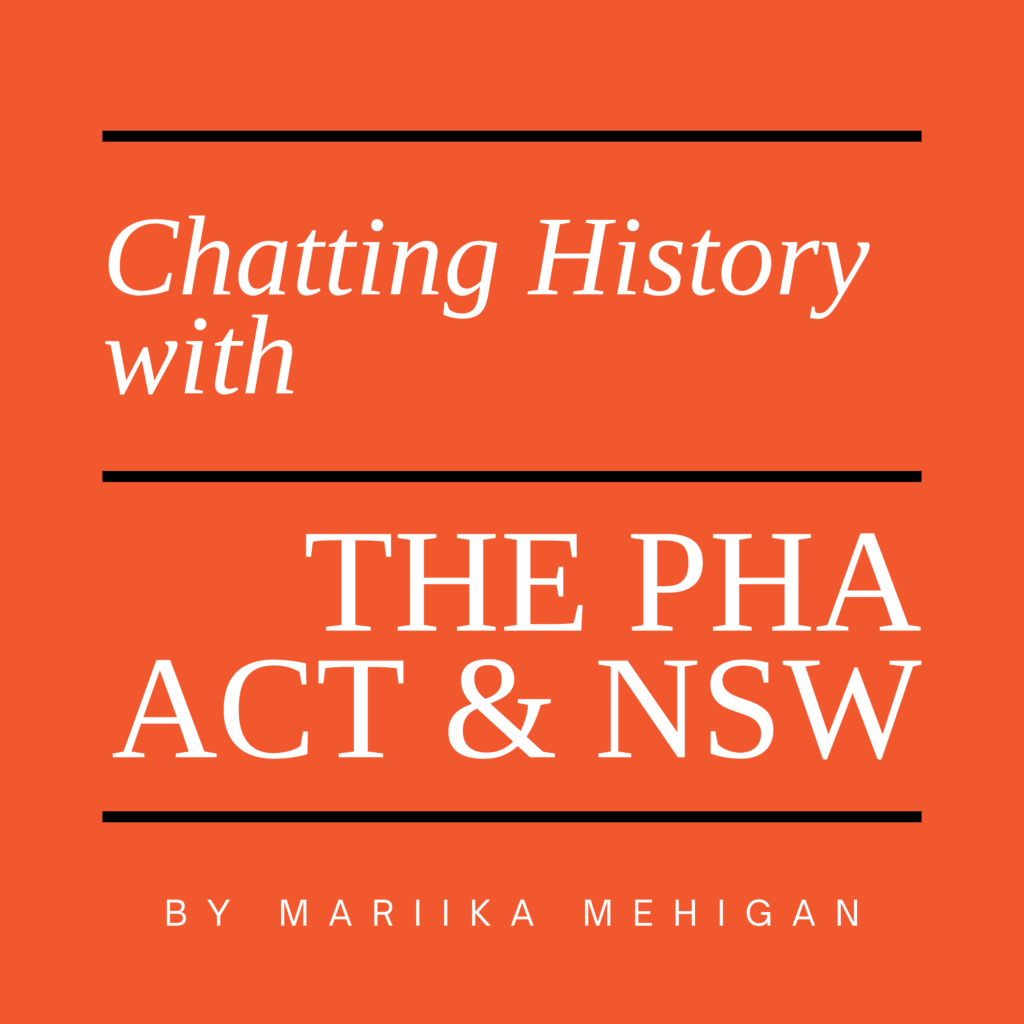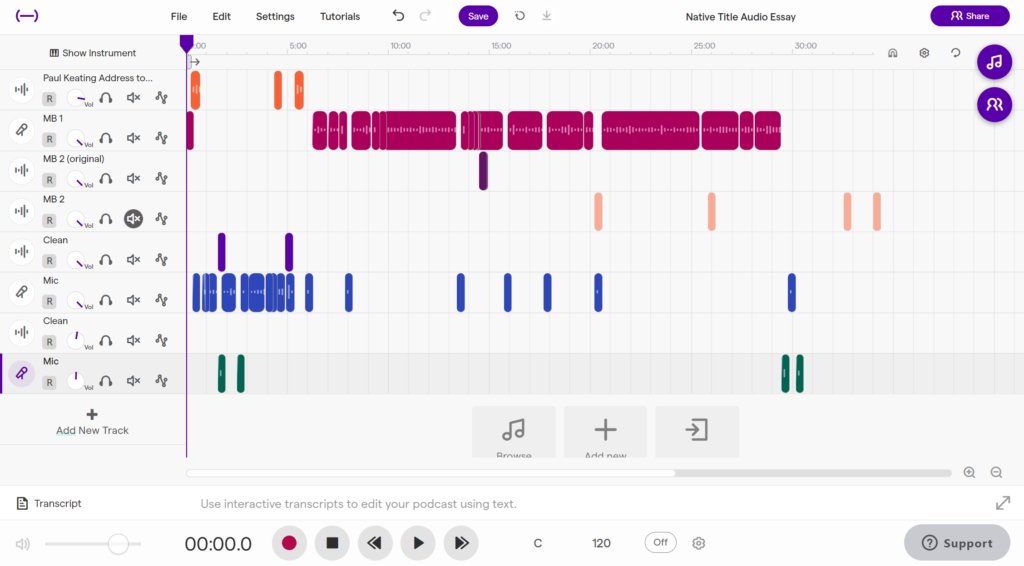While history podcasts are certainly not novel, I believe that there is a gap in the market for an educational history podcast that goes beyond “storytelling” and engages with historical debates, the practice of history and how it informs current issues. Particularly in Australia, I believe the average person knows very little of the nation’s history beyond what is ‘enshrined’ in state-funded memorials and national holidays. I believe more ‘casual’ engagement with forms of public history that emphasise the complexity and encourage personal reflection is essential to correcting this. As a result, I have chosen to create a podcast, titled ‘Chatting History’ with the Professional Historians Associations (PHA), for my work this Semester. The project features three interviews with historians who are members of the PHA who work in vastly different fields, one of which features a significant amount of my own analysis, in what I’ve called an audio essay.

The implicit argument in the project is that history is a fundamental element of the present day, one which must be understood to fully engage with current issues. This can be seen in the way in which each conversation, both intentionally and unintentionally, became about something to do with the present. To name one example, in the episode about Native Title, I begin with a talk about the concept of Terra Nullius and the Mabo decision, and then into a discussion of present issues relating to Indigenous reconciliation and the role of a historian in Native Title. This showcases that the past and the present are fundamentally interdependent. Similarly, my discussion with a historian who researches the history of women in the Australian media became one about how social movements have changed due to the influence of social media. For my interview with a historian who works in Australian political history, and worked for many years in university administration, I asked what he thought of the Coalition’s recent fee hikes of humanities university courses (a topic about which, you can imagine, we both had a lot to say).
The main change that was made in the process was the addition of an audio essay. While I was initially wanting to feature as little of myself as possible in the recording, I felt that the topic of Native Title required more context, as the conversation did not provide any explanation of where Native Title comes from and therefore its significance. That episode features a discussion of the concept of Terra Nullius, including how it was situated within eighteenth-century international law and colonial thinking, and the Mabo Case itself. This includes how the case began, the reactions of the Queensland government and how it prompted federal legislation, leading to the creation of the system of Native Title. I feel like the inclusion of this information adds an important amount of context which in turn strengthens the succeeding conversation about what issues exist in the present system.

The podcast has the potential to be an effective form of advertising for the Professional Historian’s Association and its members. It can serve to raise awareness of the organisation and add to the online presence of the interviewed historians. Ultimately, I hope the podcast will spark someone’s interest in history and encourage a viewer to think critically about the history they know and how that history informs present-day issues.
